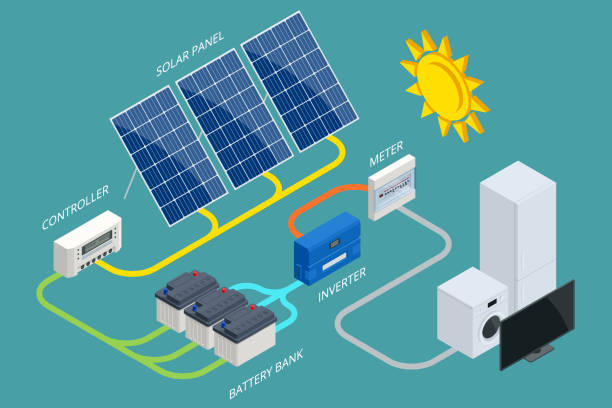Simplifying the Complexities: How to Effectively Draft a Contract of Sale in Ghana with Wigmore Trading
Simplifying the Complexities: How to Effectively Draft a Contract of Sale in Ghana with Wigmore Trading
Are you a business owner or entrepreneur in Ghana looking to draft a contract of sale that covers all the necessary details and protects your interests? Look no further because we have got you covered! In this blog post, we will simplify the complexities of contract drafting by partnering with Wigmore Trading, one of Ghana’s leading legal firms specializing in commercial law. Whether you are new to contracts or an experienced professional, join us as we delve into the essential components and expert tips that will help you effectively draft a contract of sale. Let’s make legal jargon easy and ensure your business transactions are smooth sailing with Wigmore Trading by your side!
Introduction: Importance of a Contract of Sale
Introduction: Importance of a Contract of Sale
A contract of sale is one of the most fundamental and widely used legal documents in business transactions. It is a legally binding agreement between two parties, the seller and the buyer, outlining the terms and conditions for the sale and purchase of goods or services. In Ghana, a contract of sale is regulated by the Sale of Goods Act, 1962 (Act 137) which sets out specific provisions governing such contracts.
The importance of a well-drafted contract of sale cannot be overstated. It serves as a foundation for any business transaction and provides clarity on the rights and obligations of both parties involved. This section will discuss in detail why having a properly drafted contract of sale is crucial for both buyers and sellers.
1. Clarity on Terms and Conditions:
One primary reason why contracts are essential in business transactions is that they outline clear terms and conditions agreed upon by both parties. A well-drafted contract should contain all relevant details such as description, quantity, price, payment terms, delivery timeframes, warranties, etc., leaving no room for ambiguity or misunderstanding. This ensures that both parties are aware of their rights and responsibilities from the outset.
For instance, Wigmore Trading may enter into a contract with a supplier to purchase raw materials for their production process at an agreed price per unit. The contract should clearly state how many units will be supplied per month or batch, when payment will be made, quality standards expected from the supplier’s end among others.
Understanding the Basics: What is a Contract of Sale?
A contract of sale is a legally binding agreement between two parties, the buyer and the seller, for the purchase and sale of goods or services. It outlines the terms and conditions of the transaction including price, quantity, quality, delivery date, payment terms, and any other relevant details.
In Ghana, a contract of sale is governed by the Sale of Goods Act 1962 (Act 137), which defines a contract of sale as “a contract whereby the seller transfers or agrees to transfer ownership in property to the buyer for money consideration called price”.
Essential Elements of a Contract of Sale
For a contract of sale to be valid in Ghana, there are certain essential elements that must be present. These include:
1. Offer and Acceptance: The first step in creating a contract of sale is an offer from one party that is accepted by another. The offer must be clear and specific in its terms while acceptance must be unqualified.
2. Intention to Create Legal Relations: Both parties must have a mutual intention to enter into a legally binding agreement.
3. Consideration: A valid contract requires some form of consideration or payment made by either party in exchange for goods or services.
4. Capacity: Both parties involved must have legal capacity which means they are mentally competent and not under any legal disability such as being underage or declared bankrupt.
5. Legality: The subject matter of the contract must be lawful and not against public policy.
Key Elements of a Contract of Sale
A contract of sale is a legally binding agreement between two parties, where one party agrees to transfer ownership of goods or services to the other party in exchange for an agreed-upon price. In Ghana, contracts of sale are governed by the Sale of Goods Act 1962 (Act 137) and the general principles of contract law.
When drafting a contract of sale, it is crucial to include all necessary elements to ensure that both parties’ rights and obligations are clearly defined and protected. The following are key elements that should be included in a contract of sale:
1. Identification of the Parties: The first and most essential element of a sales contract is identifying the parties involved. This includes their full names, contact information, and any relevant identification numbers such as business registration numbers or national identification numbers.
2. Description of the Goods/Services: A detailed description of the goods or services being sold must be included in the contract. This should include specific details such as quantity, quality, size, color, model number (if applicable), and any other relevant features.
3. Price: The agreed-upon price for the goods/services must also be clearly stated in the contract. It is important to specify whether it is a fixed amount or subject to change based on certain conditions such as delivery date or performance.
– Offer and Acceptance
Offer and acceptance are key elements in any contract of sale, including those in Ghana. These two components establish the mutual agreement between the parties involved and form the basis of a legally binding contract.
An offer is a proposal made by one party to another, expressing their willingness to enter into a contract on certain terms. It must be communicated clearly and explicitly, leaving no room for ambiguity or misunderstanding. In the context of a contract of sale, an offer can include information such as the price of the goods or services being sold, quantity, quality standards, delivery date and payment terms. The offer should also state how long it will remain valid for, after which it will become invalid.
On the other hand, acceptance is when the offeree (the person receiving the offer) agrees to all of its terms without any modifications or counteroffers. Acceptance can be verbal or written and must also be clearly communicated to show that both parties have reached an agreement on all aspects of the contract. In some cases, silence or non-response may also be considered as acceptance if it is understood to be an implied agreement.
In order for there to be a valid contract of sale in Ghana, there must be a clear offer from one party and unambiguous acceptance from the other. Both parties must also have legal capacity to enter into a contract – meaning they are mentally competent and not under duress or coercion.
– Consideration
When entering into a contract of sale in Ghana, it is important to carefully consider all aspects of the agreement to ensure that both parties are protected and their rights and obligations are clearly defined. This section will provide a detailed overview of the considerations one must keep in mind when drafting a contract of sale with Wigmore Trading.
1. Identify the Parties Involved: The first step in drafting any contract is to clearly identify the parties involved. In this case, it would be Wigmore Trading as the seller and the buyer. Make sure to include their full legal names, addresses, and contact information.
2. Clearly Define the Subject Matter: The subject matter of the contract should also be stated clearly and accurately. This includes describing the goods or services being sold by Wigmore Trading, such as quantity, quality, specifications, etc.
3. Specify Price and Payment Terms: One of the most crucial aspects of a contract of sale is defining the purchase price and payment terms. It is important to state how much will be paid for the goods or services, when payments are due, what currency will be used, and any acceptable forms of payment.
4. Include Delivery Terms: The delivery terms should also be clearly outlined in the contract. This includes specifying who will bear responsibility for shipping costs and insurance during transit from Wigmore Trading’s location to the buyer’s location.
– Intention to Create Legal Relations
The concept of “intention to create legal relations” is a fundamental aspect of contract law and plays a crucial role in the drafting of any contract, including a contract of sale. In simple terms, it refers to the intention of the parties involved to enter into a legally binding agreement. This means that both parties must have a clear understanding that they are entering into a legal relationship and will be held accountable for their obligations under the contract.
In Ghana, as in most common law jurisdictions, there is a presumption that parties intend to create legal relations when entering into commercial contracts such as a contract of sale. However, this presumption can be rebutted if there is evidence to suggest otherwise. Therefore, it is essential for parties drafting a contract of sale to explicitly state their intention to create legal relations in order to avoid any confusion or disputes later on.
There are several ways in which you can clearly express your intention to create legal relations in a contract of sale:
1. Use Clear and Unambiguous Language: The language used in the contract must be precise and leave no room for interpretation or ambiguity. This helps establish the seriousness and intent of both parties to enter into a legally binding agreement.
2. Include Essential Elements: A valid contract requires certain essential elements such as offer, acceptance, consideration, capacity, and lawful object. Including these elements in your contract shows that both parties understand the requirements for creating an enforceable agreement.
– Capacity to Enter into a Contract
One crucial aspect of drafting a contract of sale in Ghana is ensuring that both parties have the capacity to enter into a legally binding agreement. This means that they must possess the legal competence and understanding necessary to understand the terms of the contract and their responsibilities under it.
In Ghana, the age of majority is 18 years old, which means that individuals below this age are considered minors and do not have full legal capacity. Therefore, any contracts entered into by minors may be deemed void or unenforceable.
However, there are exceptions to this rule. According to Section 2(3) of the Contracts Act 1960 (Act 25), minors can enter into contracts for necessities such as food, clothing, shelter, medical treatment, education, and other basic needs. Additionally, minors can also enter into contracts with their guardians’ consent or through a court-appointed guardian.
Another important consideration when assessing an individual’s capacity to enter into a contract is their mental state. If a person has been declared mentally incapacitated by a court of law or is unable to understand the terms of the contract due to mental illness or impairment, they may not have legal capacity.
Moreover, individuals who are under undue influence or coercion may also lack the capacity to enter into a contract. Undue influence occurs when one party uses their position of power or authority to pressure another party into entering an agreement against their will.
Important Clauses in a Contract of Sale with Wigmore Trading:
When entering into a contract of sale with Wigmore Trading in Ghana, there are several important clauses that should be carefully considered to ensure a successful and fair transaction. These clauses are crucial for protecting the interests of both parties and ensuring that all terms and conditions are clearly defined.
1. Parties Involved: The first and most important clause in any contract of sale is the identification of the parties involved. This includes the full legal names and addresses of both the buyer and seller. It is essential to accurately identify the parties to avoid any confusion or disputes later on.
2. Description of Goods/Services: The contract should clearly state what goods or services are being sold by Wigmore Trading. This includes a detailed description, quantity, quality, price, and any other relevant information related to the products or services being exchanged.
3. Price and Payment Terms: The price of goods or services must be explicitly stated in the contract, along with payment terms such as when payment is due, accepted methods of payment, and consequences for late payments or non-payment.
4. Delivery/Pick-up: If Wigmore Trading will be delivering goods to the buyer, this clause should specify when and where delivery will take place, who will bear the cost of transportation, and what happens if there are delays in delivery.
– Price and Payment Terms
Price and Payment Terms
One of the most crucial aspects of a contract of sale is determining the price and outlining the payment terms. This section should clearly state the agreed-upon price between the buyer and seller, as well as how and when payments will be made.
1. Determining the Price: In Ghana, there are no laws that regulate pricing in contracts of sale. Therefore, it is important for both parties to come to a mutual agreement on the price before drafting the contract. The price can be a fixed amount or based on other factors such as market value or inflation rates.
2. Payment Method: There are various ways in which payments can be made in a contract of sale, including cash, cheque, bank transfer, or installment payments. It is important to specify which method will be used in order to avoid any confusion or disputes later on.
3. Installment Payments: In some cases, buyers may not have sufficient funds to make a one-time payment for an item. In such situations, installment payments can be agreed upon between the buyer and seller. However, it is crucial to outline specific terms for these payments such as the amount due each month and the duration of time over which they will be paid.
4. Retention of Title Clause: A retention of title clause allows sellers to retain ownership of goods until full payment has been received from the buyer. This provides protection for sellers against non-payment or bankruptcy by buyers.
– Delivery and Transfer of Ownership
In any contract of sale, one of the most important aspects to consider is the delivery and transfer of ownership. This section outlines the specific details and considerations that should be included when drafting a contract of sale for Wigmore Trading in Ghana.
Delivery:
The first step in a contract of sale is the delivery of goods from the seller to the buyer. This can either be physical delivery or symbolic delivery. Physical delivery refers to the physical handing over of goods from the seller to the buyer, while symbolic delivery refers to actions or gestures that represent the transfer of ownership without actually physically delivering the goods.
When drafting a contract of sale for Wigmore Trading, it is crucial to specify how and when delivery will take place. This includes details such as where and when the goods will be delivered, who will cover transportation costs, and whether there are any specific requirements for packaging or labeling.
It is also important to include provisions for delayed or partial deliveries. In case there are any delays or if only part of the goods can be delivered at once, both parties should agree on how this situation will be handled in terms of payment and completion dates.
Transfer of Ownership:
Once delivery has taken place, it is essential to clearly state when ownership transfers from the seller to the buyer. In Ghanaian law, ownership typically transfers upon physical delivery unless otherwise specified in a written agreement between both parties.
– Warranties and Representations
Warranties and representations are important elements that should be carefully considered when drafting a contract of sale in Ghana. These terms essentially refer to the promises made by the seller and the buyer regarding the goods or services being sold.
In this context, warranties are assurances given by the seller to the buyer about certain aspects of the goods or services being sold. These may include promises about the quality, performance, functionality, or condition of the goods. Warranties can either be express (explicitly stated in the contract) or implied (implied by law). It is crucial for both parties to clearly define and agree upon these warranties before finalizing the contract.
Representations, on the other hand, are statements made by one party to persuade or induce another party into entering into a contract. Unlike warranties which form part of contractual obligations, representations do not have a binding effect unless they are explicitly stated as such in the contract. However, if a representation turns out to be false, it can potentially lead to legal consequences such as rescission of contract or damages.
When drafting a contract of sale with Wigmore Trading in Ghana, it is essential to carefully consider and include appropriate warranties and representations that accurately reflect both parties’ expectations and responsibilities. This will help avoid any misunderstandings or disputes arising from unfulfilled promises.








Comments are closed.